For What Reason did Russia Expand? - Ippolit Zavalishin, 1867
Translation on why Russia conquered a sixth of the world's landmass
Preliminary note: For Gmail readers, this essay might be clipped due to size limitations. To read the entire essay simply click on “View entire message” at the bottom of the email, thanks.
Below is a translation of an excerpt from “Описание Западной Сибири. Том 3. Сибирско-киргизская степь., 1867,” (Description of Western Siberia. Volume 3. The Siberian-Kyrgyz Steppe, 1867) by Ippolit Irinarkhovich Zavalishin. The source for the translation can be found here. The original text can be found here.
Zavalishin was born in Astrakhan in 1808. During the events surrounding the Decembrist revolt, Zavalishin falsely denounced his brother and others, and as punishment was exiled to Orenburg, located on the edge of the Kazakh steppes. While there, he joined a secret society dedicated to overthrowing the Tsar, but was soon caught and denounced other members within the society. Later in 1828, he was sentenced to katorga (hard labour) in Chita, in Russia’s Trans-Baikal region. He was seemingly an extremely lowly individual.
The text discusses the geopolitical necessity of Russia’s imperial expansion. According to Zavalishin, Russia’s expansion was a quest for security. Expansion was done in order to avoid the fate of weaker powers who were subsumed by more powerful ones, and to secure a future for the Russian people. While Russia took a particularly turbulent path in the 20th century, Zavalishin’s arguments have proven true. Thanks to the efforts made by Russia’s imperial conquers, the modern Russian state emerged from the ruins of the Soviet Union with some of the most valuable land and resources in the world, in addition to peoples and cultures which are characterized both by their cultural sophistication and warlike spirit. Unlike other world powers who willingly chose to throw away what their ancestors left for them, the Russians did not. From 1991 onwards, Russia has has moved in the opposite direction than the West in this regard. Whereas the West has chosen to erase its cultures and peoples in a futile bid to create a new society that is completely uprooted and disconnected from the past, Russia, having already suffered from a milder version of this cancer, instead chose to preserve what it had left.
And the consequences of these choices are already bearing fruit. While the West remains quite powerful, in reality its economies have been hollowed out and its peoples are demoralized and tired, increasingly strangers in their own countries and facing a similar ideological chasm that the Soviet Union faced in 1980’s. On the other hand, today, on the date of this publishing, Russia celebrate’s Victory Day, not just over Germany nearly 80 years, but also its recent victories over Ukrainian-NATO forces. As it turns out, the preservation of a people and their culture, as well as the maintenance of an industrial economy, is a vastly more successful formula than whatever it is that the West has experimented in doing in recent decades.
A few additional notes. Zavalishin refers to the Siberian lines several times in the text. These were Russia’s fortified frontiers that were constructed along the Ishim and the Irtysh Rivers, as well as along the northern face of the Altai Mountains. These lines consisted of several main fortresses, with smaller outposts and watchtowers scattered in between them. The purpose of these lines was to guard Russia’s frontiers from the predatory raids of the steppe nomads. Russia built similar lines all across its territory throughout history, and constantly modernized or moved them forward when necessary. One could even say that the so called “Surovikin Line” built in Zaporozhia and south Donetsk meant to halt Ukraine’s Summer 2023 offensive is the most recent iteration of Russia’s fortified frontier lines.
Also interesting is the malicious role that Islam is accused of playing. In order to cement its control over the Kazakhs, Russia actually promoted Islam among them by sending Volga Tatars to the steppes to proselytize and to make the Kazakhs into better Muslims. Prior to this, the Kazakhs largely still practiced shamanism. The Russian authorities believed that through Islam the Kazakhs could be sedentarize as mosques would physically tied them to a specific location. As the mosques were controlled by the Russian state, the nomads would also be kept under watch. It appears Russia also sought to promote its own version of “moderate Islam” that would counter the more radical strains coming out of Bukhara and elsewhere.
Lastly, the claims Zavalishin makes about British military equipment being found among Kokandi forces is interesting. I am not sure if it is true. Either way, the prospect of a great power rival arming a hostile state on Russia’s border has been a perennial concern them. During the Caucasian War Russia feared the British would arm the Caucasians or Shamil, and there were attempts by David Urquhart and others to do so. During the Soviet era Stalin greatly feared that Britain would arm and support Polish and Japanese aggression against the Soviet Union, and took extreme prophylactic measures against this possibility. And this nightmare scenario for Moscow has indeed come true today with American support to Ukraine.
For What Reason did Russia Expand?
Some critics, analyzing the first volume of “Description of Siberia” that we compiled, said: “For what reason did Russia expand? Wasn’t she satisfied with what she had!”
It is quite true, isn’t it? Without expanding Russia would not be as how we see it in our time: “the leading state in the world in terms of diversity of lands, continuity of space and the most favorably placed for the development of its real power, and further into the future as time goes on it will only get stronger.” Without Poland Russia would not have a strong point in the very heart of continental Europe; without Crimea and Bessarabia1 she would not weigh down over Turkey; without Siberia and the Amur2 she would not have been able to move herself to the very core of the Far East.
But some will say: “Was this necessary?” It was necessary, otherwise she would have shared the same fate as Poland, Hungary, Bohemia, constrained from the west by Europe and in the east by the Asian nations under the unbroken leadership of England… In the end, for the wide development of trade, and with her most true and most long lasting development for the prosperity of her people, it was necessary and inevitable that Russia move as deep as possible into Europe and Asia.
The most brilliant and far-sighted of Russia’s statesmen have always understood and strived for this. This was even vaguely foreseen by Russian leaders during the depths of antiquity. It was not on a whim that the half-wild Norman Svyatoslav3 wanted to resettle from the shores of the Dnepr to the shore of the Danube. Not on a whim also, that Ivan III dreamed of Byzantium and the shores of the Baltic Sea. Nor on a whim that, in the end, did Peter the Great found Petersburg and go to the Prut,4 Catherine II conceived of the “Greek project”5 and shattered the Kingdom of Poland, Alexander I took Warsaw and Finland, Nikolai I – the left bank and mouth of Danube, and Alexander II – the entire course of the Amur and the Ussuri,6 bringing us to Korea and nearly to the furthest gates of the far east! This thousand years of persistence is justified by historical inevitability and the divine leadership of the fate of our people.
Let us look at a striking example of a recent conquest, but noticeable not only for Europe, but also for Russia, which has been progressing every year step by step for more than a 150 years, and now encompasses a massive space from the Caspian Sea to western China and Kokand, namely the Kyrgyz7 steppes by both departments – Orenburg and Siberia.8 Without this conquest, the colonization of the Orenburg region, the southern part of the Tobolsk governate and Tomsk,9 would have been decisively impossible. Before we had gone deeper into the steppe, the Kyrgyz on the Ural and Siberian lines10 and the Kalmyks11 on the Siberian lines continuously raided our outposts on the Irtysh, Ishim and Ural rivers. Similar to the Caucasian highlanders, the steppe nomads “removed”, as it is said locally, anyone they caught from the fields sowing or making hay, anyone cutting firewood, any lonely travelers, and even from people stanitsas12 (who were caught with lassos) who were taken away into the steppes and then sold into slavery in Bukhara, Khiva, Tashkent and Kokand. The Kalmyks even made raids on Tomsk, and the Kyrgyz on Ishim and Kurgan. Their shared community of faith (Islam) with our Tatars always resulted in them receiving moral support in their activities from the latter, who were eager to betray the Russian authorities and sought to harm Russians in our village by all possible means!

Even now, when Russian outposts are already within sight of Khiva, Bukhara and Kokand, our Tatars are often caught as accomplices with the already powerless, but occasionally restive Kyrgyz. We already know personally about the Tatar mullah Alim Yagudin who was sent to Pelym in 1859 no more than seven years ago in exile, who was the former adviser, spiritual friend and diplomat to the famous Kyrgyz Sultan Kenisary Kasymov, who caused such concern to the Middle Horde from 1837 to 1846. Similar mullahs, receiving Muslim teachings first in Kazan and then completing them in Bukhara (once considered the center of Islamic education in Middle Asia), traveled to Mecca and received the title “hajji” (a Turkic word, indicating that the person was a pilgrim to the holy place of Islam), sometimes have a very harmful influence on local steppe peoples.
Of course, from the time of colonization of the pre-linear region and the gradual conquest and settlement of the steppes over the course of 134 years already (since 1732), neither a Abdel-Kader13 nor a Shamil14 have appear on it. However, without expanding our frontiers up to Khiva and Kokand and without forming the bayonets around the Kyrgyz steppes into a steel chain, peace would have been unthinkable even in the Tobolsk and Tomsk. The Kyrgyz are unlike the peaceful Buryats of Trans-Baikal, the passive Ostyaks, Tungusics, Samoyeds, nor even like the modest Goldis15 of the Amur. Their warlike spirit has not yet faded, and besides, they are Muslims, and to their back is holy Bukhara, scheming Kokand and Khiva, and further… is England, active from the East Indies. In 1853 and 1854 (in other words, only twelve years prior to this) on the Syr-Darya and on the frontier with Kokand, bronze English artillery pieces were found among the Kokandis we defeated, and the infantry that appeared on the field of battle were armed with rifles with bayonets and fought in red uniforms!
Thus, to repeat again, “English policy never sleeps.” And what sort of people would the English be if they were not watching with fear and in awe, with envy and, perhaps, even hatred at the sight of Russian outposts on the frontiers of Persia, western China, Khiva, Bukhara, Kokand, and Russia’s control of the southern harbors of the Amur and Ussuri in view of Korea and Japan? After all, this is a death sentence to English power in the East Indies, which approaches little by little, day by day, step by step. Canada and the East Indies will eventually break away from England. The loss of India would mean the loss of her sources of income, and with this would come her downfall!
Only “the enemy of Russia and the Russian people” could sneer over her aspirations for expansion… This is her life, a necessity for her state, her historical future!
Moldova, along with Budjak, which is located south of the Republic of Moldova and currently a part of Ukraine
A major river in eastern Siberia that flows from Mongolia to the Sea of Okhotsk. The modern Russo-Chinese border runs along a large part of the Amur river (also known as Heilongjiang in Chinese)
Grand Prince of Kiev, 943-972
A river that flows from the Carpathians in western Ukraine into the Black Sea. The modern Romanian-Moldovian border runs along the Prut
The plan to conquer Constantinople and restore the Byzantine Empire under Russian tutelage
A tributary of the Amur river, the Russo-Chinese border between Vladivostok and Khabarovsk runs along the Ussuri
Actually the Kazakh steppes. Prior to Soviet times Russians refered to the Kazakhs as Kyrgyz. All further references to Kyrgyz in this translation are actually Kazakhs
Two territorial administrative, military commander zones were responsible for security on the Kazakh steppes. One was based in Orenburg in west located south of the Ural Mountains, the other in Omsk in southern Siberia
Two of Russia’s earliest settlements in Siberia, founded in the early 17th century. Both are located on the Ob River basin, north of Omsk
These were fortified lines that consisting of forts that guarded Russia’s frontier with the steppes
Western, or Oirat, Mongols. Russians used this word for all western Mongolian tribes, including the Zungars
Cossack settlements
Algerian leader who fought French colonist forces in the 19th century
Leader of the Caucasian highlanders of Chechnya and Dagestan against Russia in the 19th century
Ostyaks, Tungusics, Samoyeds, and Goldis are small Siberian peoples who were easily conquered by Russia




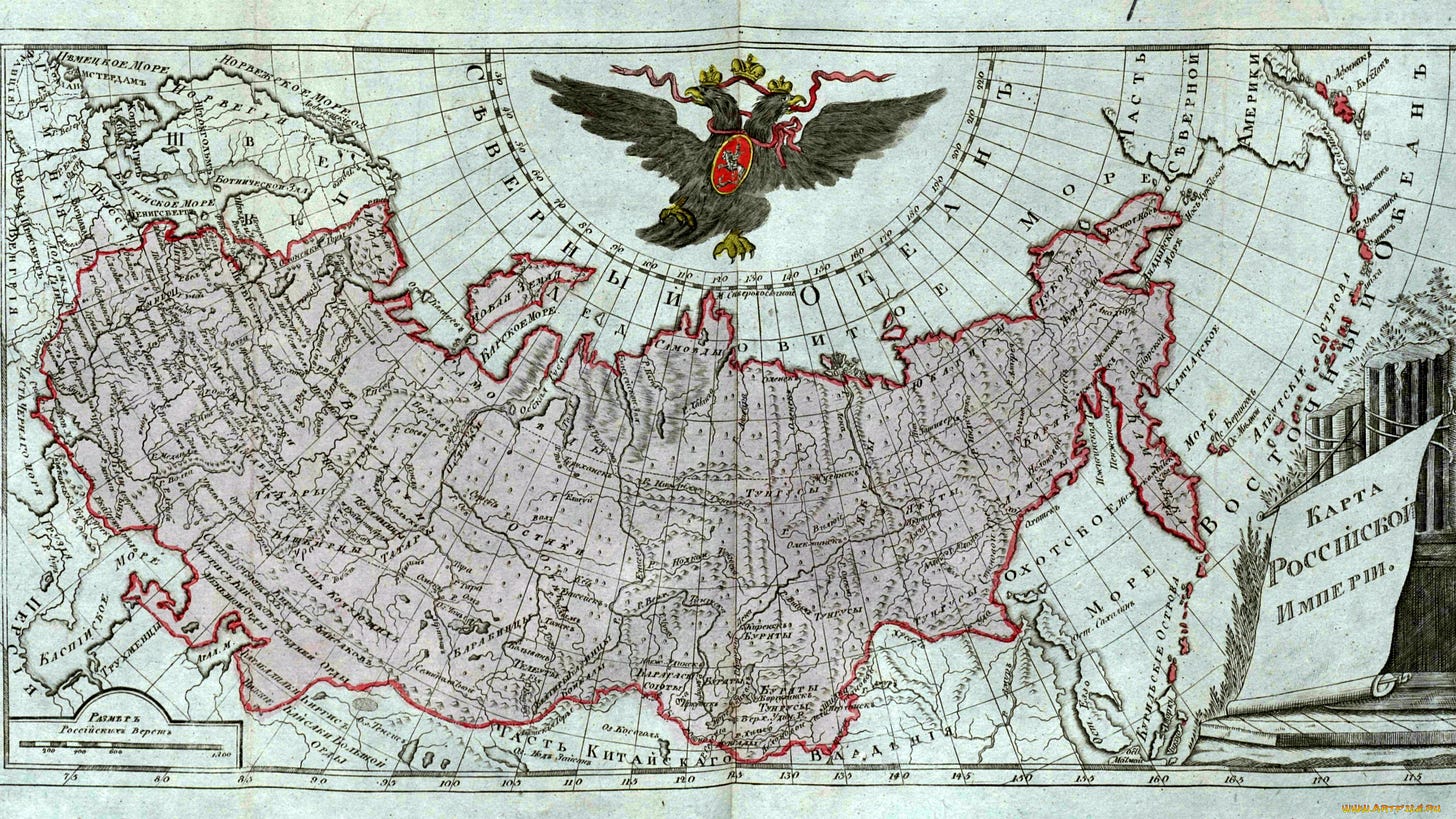
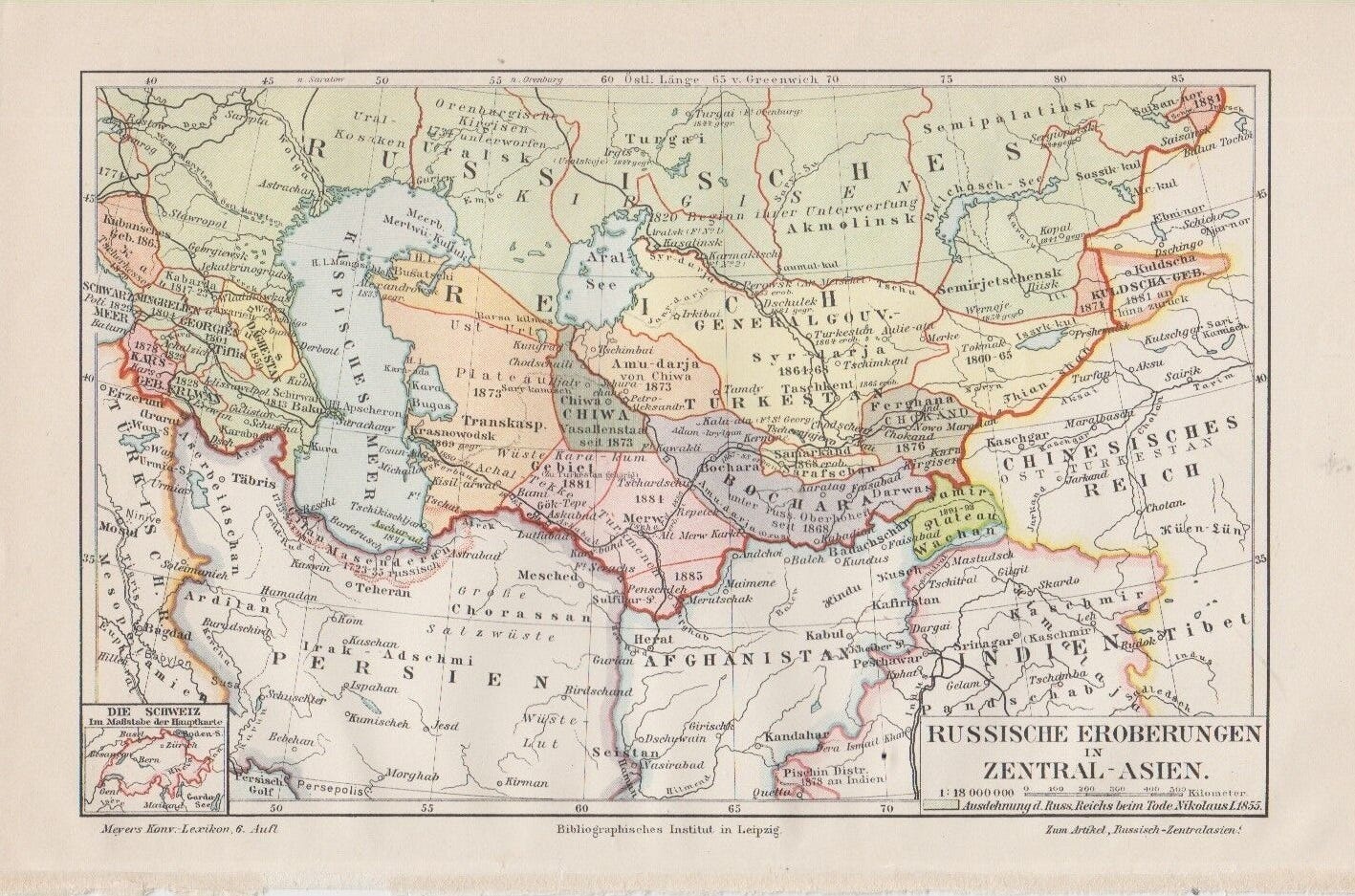
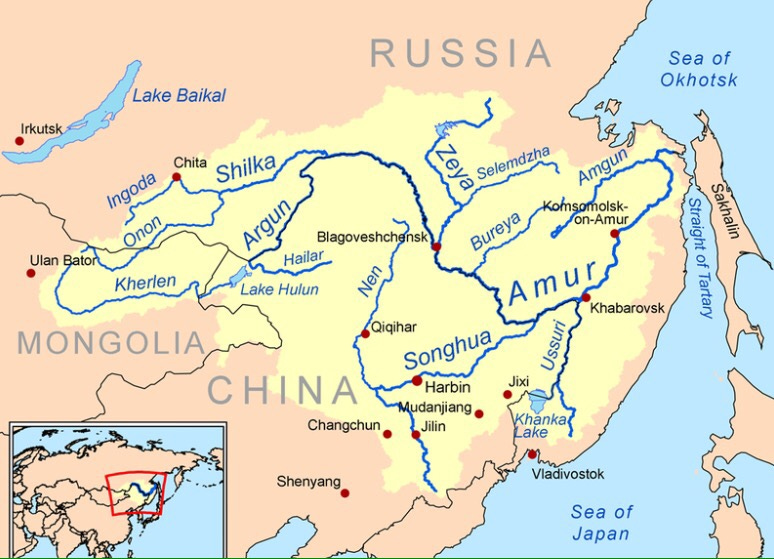
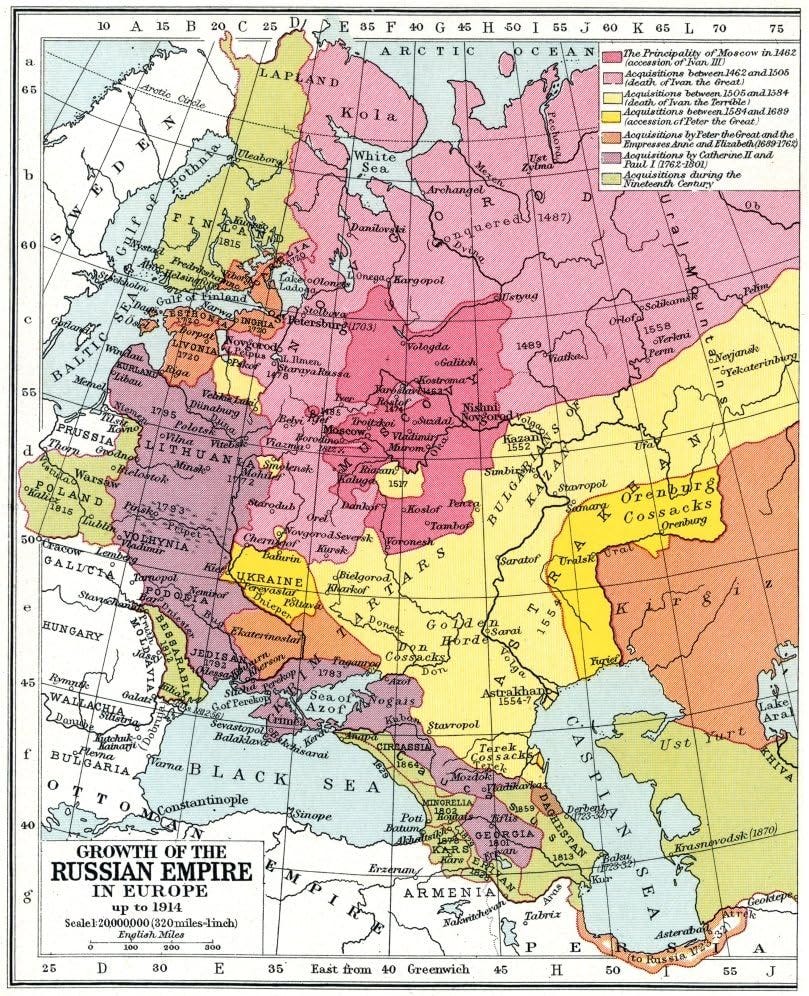

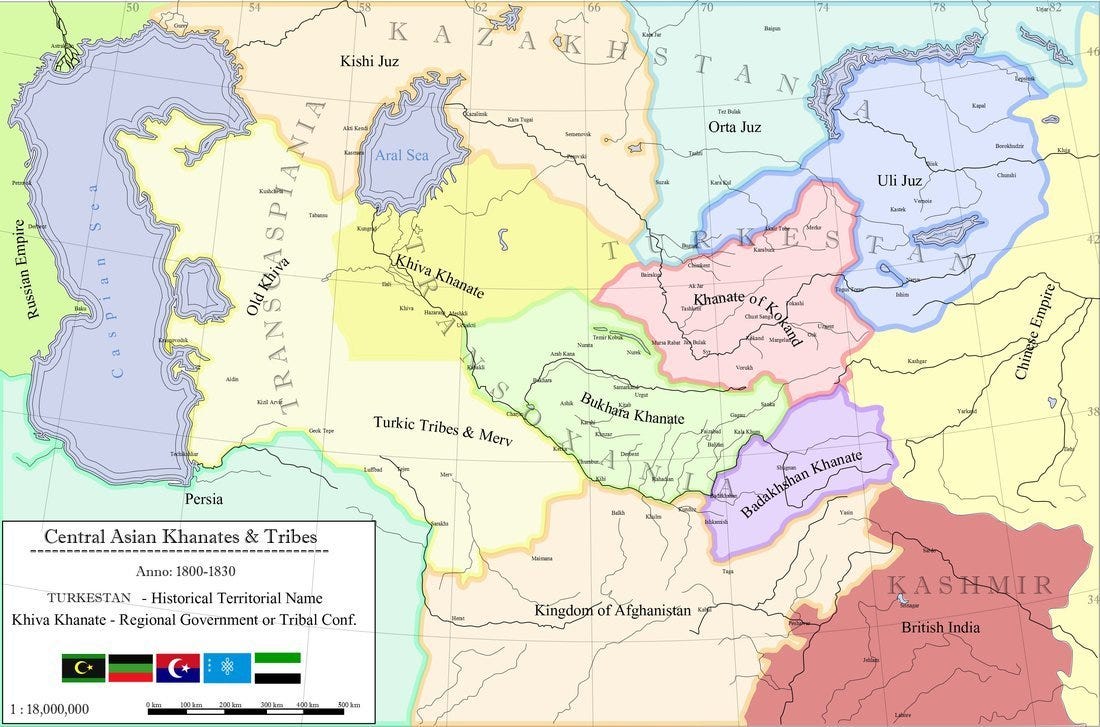
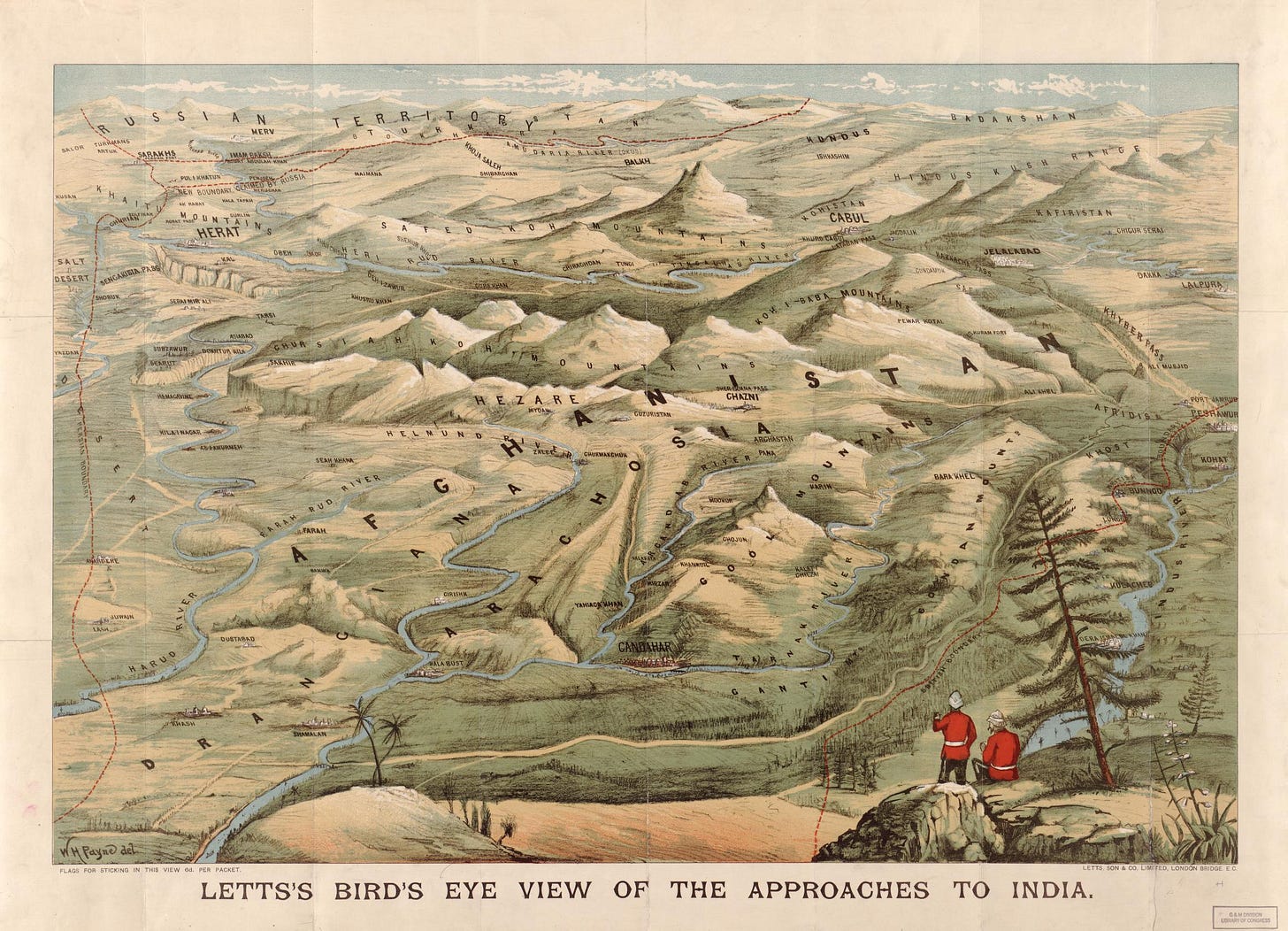
We Americans like the English before us regard oceans as you Eurasians regard steppes.
Invasion corridors.
This is why you face war in Ukraine today. We were well aware of your desire to make inroads into Europe.
Partners? Indeed. As Belarus is a partner.
As we Americans are well aware oceans are not barriers but invasion corridors, we’re never likely to allow any power to push towards the Atlantic, as China learns now about the Pacific.
Personally I think it’s time to stop fighting and compete for the infinite- Space.
However this article spoke truthfully, as opposed to the unjustly invaded Saints narrative.
Congratulations on Donetsk, go no further.
It is true that had you not expanded, you would have been devoured. It is also true you have devoured many.
Innocent you aren’t.
Do not approach the oceans lightly, God Bless.